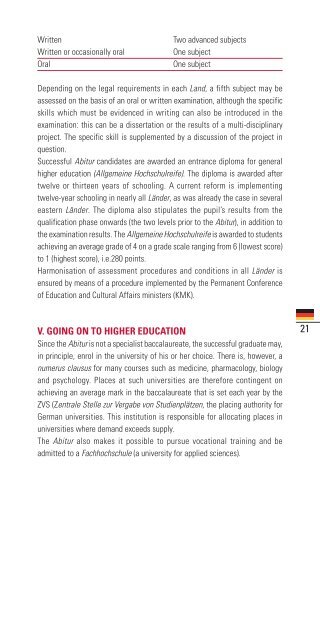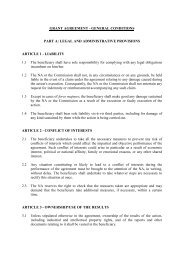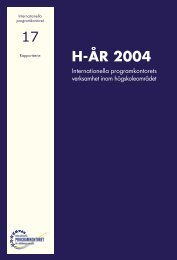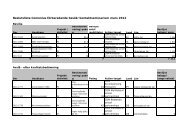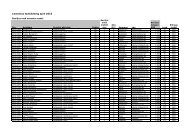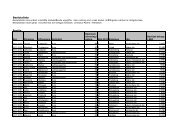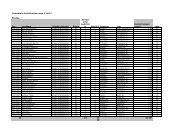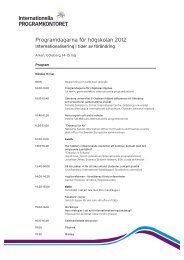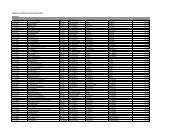Baccalauréat, A-levels, Abitur, Bachillerato
Baccalauréat, A-levels, Abitur, Bachillerato
Baccalauréat, A-levels, Abitur, Bachillerato
You also want an ePaper? Increase the reach of your titles
YUMPU automatically turns print PDFs into web optimized ePapers that Google loves.
Written<br />
Written or occasionally oral<br />
Oral<br />
Two advanced subjects<br />
One subject<br />
One subject<br />
Depending on the legal requirements in each Land, a fifth subject may be<br />
assessed on the basis of an oral or written examination, although the specific<br />
skills which must be evidenced in writing can also be introduced in the<br />
examination: this can be a dissertation or the results of a multi-disciplinary<br />
project. The specific skill is supplemented by a discussion of the project in<br />
question.<br />
Successful <strong>Abitur</strong> candidates are awarded an entrance diploma for general<br />
higher education (Allgemeine Hochschulreife). The diploma is awarded after<br />
twelve or thirteen years of schooling. A current reform is implementing<br />
twelve-year schooling in nearly all Länder, as was already the case in several<br />
eastern Länder. The diploma also stipulates the pupil’s results from the<br />
qualification phase onwards (the two <strong>levels</strong> prior to the <strong>Abitur</strong>), in addition to<br />
the examination results. The Allgemeine Hochschulreife is awarded to students<br />
achieving an average grade of 4 on a grade scale ranging from 6 (lowest score)<br />
to 1 (highest score), i.e.280 points.<br />
Harmonisation of assessment procedures and conditions in all Länder is<br />
ensured by means of a procedure implemented by the Permanent Conference<br />
of Education and Cultural Affairs ministers (KMK).<br />
V. GOING ON TO HIGHER EDUCATION<br />
Since the <strong>Abitur</strong> is not a specialist baccalaureate, the successful graduate may,<br />
in principle, enrol in the university of his or her choice. There is, however, a<br />
numerus clausus for many courses such as medicine, pharmacology, biology<br />
and psychology. Places at such universities are therefore contingent on<br />
achieving an average mark in the baccalaureate that is set each year by the<br />
ZVS (Zentrale Stelle zur Vergabe von Studienplätzen, the placing authority for<br />
German universities. This institution is responsible for allocating places in<br />
universities where demand exceeds supply.<br />
The <strong>Abitur</strong> also makes it possible to pursue vocational training and be<br />
admitted to a Fachhochschule (a university for applied sciences).<br />
21


